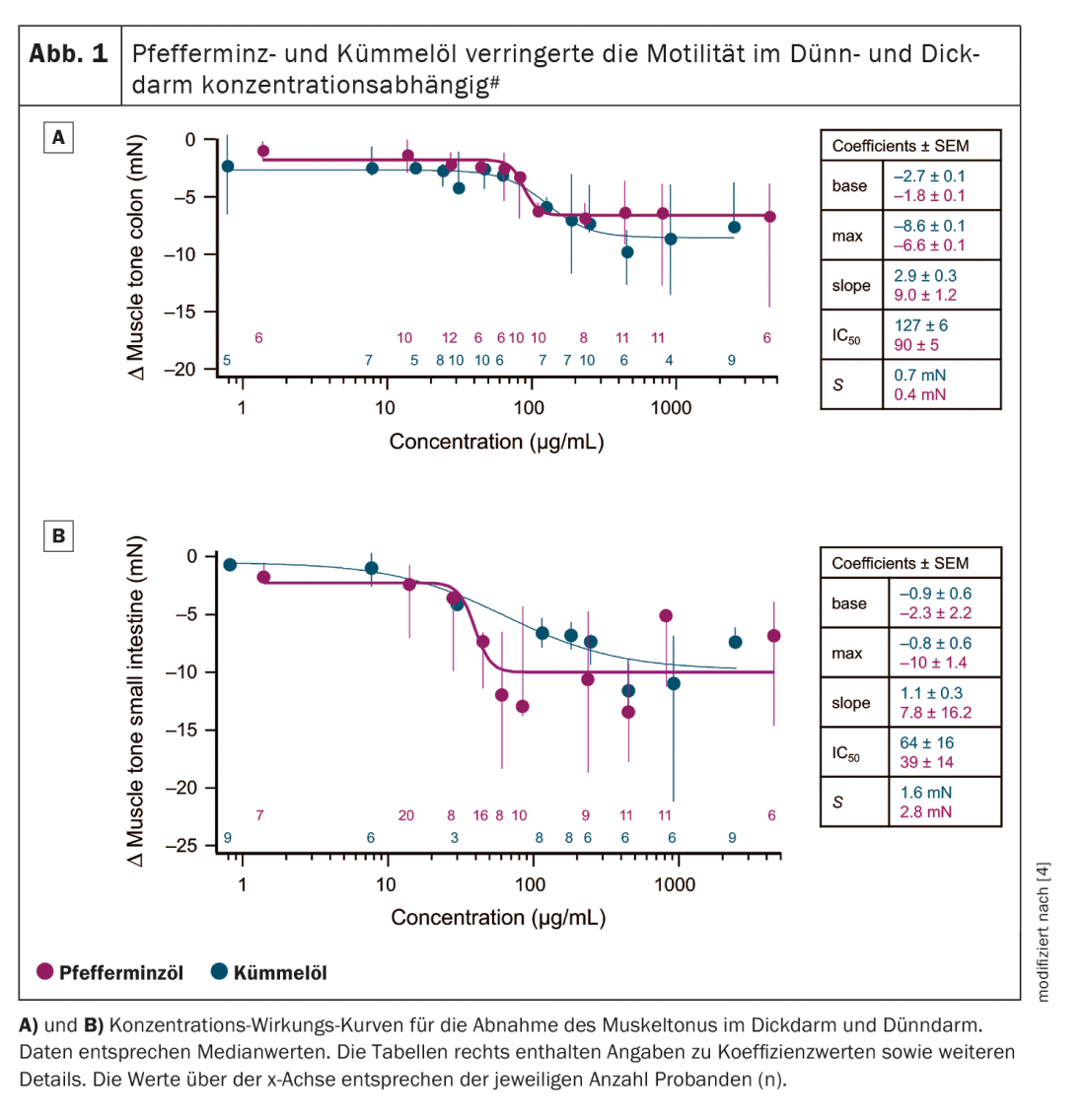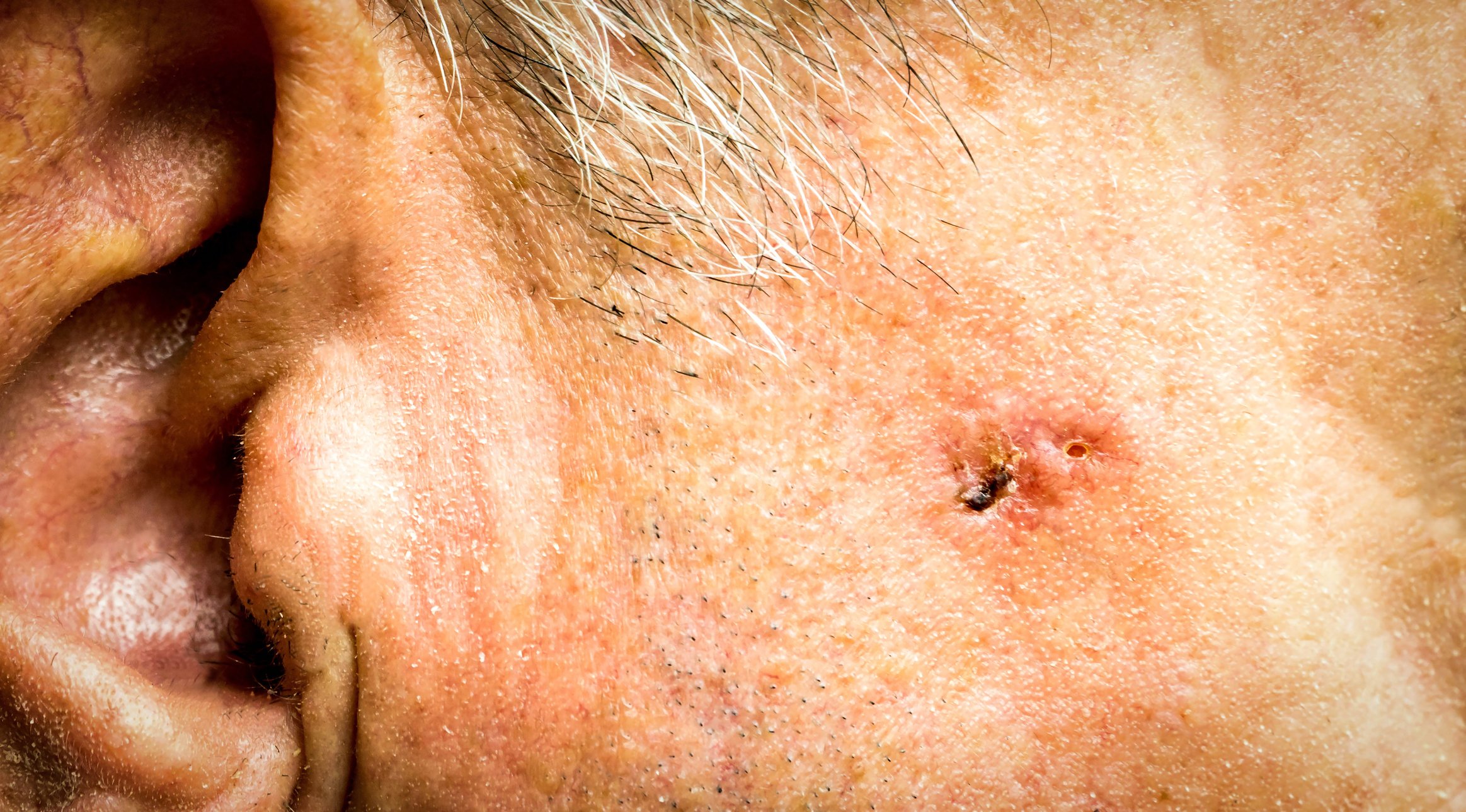An in vitro study on human digestive tissue published in 2021 demonstrated secretion-promoting effects in addition to the muscle-relaxing effects observed in previous studies. In addition, the scientists found that the muscle relaxant effect occurs via inhibition of L-type calcium channels and is independent of nerve impulses.
The phytotherapeutic drug Menthacarin®, which contains a high-dose combination of the essential oils of peppermint (Mentha×piperita L.) and caraway (Carum carvi L.) , has been shown to be useful in the treatment of functional gastrointestinal disorders. Several empirical studies have demonstrated clinically relevant symptom relief [1–3]. The aim of the present in vitro study was to investigate the effects of peppermint and caraway oil, both as single substances and in combined application, on muscle contraction as well as on epithelial chloride secretion in isolated human intestinal preparations. For this purpose, 255 preparations of human small and large bowel resects from 73 patients were analyzed using the Ussing chamber-voltage clamp technique* [4].
* Electrical potentials generated by ionic motion across the tissue preparation, are set to zero in this method by application of a short-circuit current [5].
Concentration-dependent effects
The main results of the study are as follows [4]: First, peppermint and caraway oils significantly decreased motility in the small intestine and colon by reducing muscle tone and phasic contractility. These effects occurred at IC50 values of 17-90 μg/ml for peppermint oil, and the corresponding range for caraway oil was 7-127 μg/ml. Second, this inhibition was myogenic and involved inhibition of L-type calcium channels. And third, peppermint and caraway oils increased ion secretion into the lumen by direct epithelial activation without nerve involvement.
Cumulative addition of peppermint and caraway oil in increasing concentrations evoked a stronger response with each increase in concentration (Fig. 1A and B) [4]. Subsequent analyses showed that the concentration-dependent responses were independent of whether peppermint and caraway oils were added cumulatively or not. This finding was reached by comparing cumulative addition vs. immediate addition of the highest concentrations in each case to the tissues of different patients in unpaired experiments.
Conclusion
Overall, the results of this in vitro study indicate that the inhibition of phasic intestinal contractility and muscle tone induced by peppermint and caraway oil, as well as the effects on epithelial activity, contribute to the symptom-relieving effects of Menthacarin® observed in patients with functional gastrointestinal disorders. While inhibition of intestinal contractility is mediated via inhibition of L-type calcium channels, the exact mechanism underlying the strong inhibitory effects on muscle tone remains open.
Literature:
- Specialized information: www.compendium.ch (last accessed 3.12.2021)
- Rich G, et al: A Randomized Placebo-Controlled Trial on the Effects of Menthacarin, a Proprietary Peppermint And Caraway Oil Preparation, on Symptoms and Quality of Life in Patients With Functional Dyspepsia. Neurogastroenterol Motil 2017; 29(11). doi: 10.1111/nmo.13132. epub 2017 Jul 10.
- Madisch A, et al: Safety and tolerability of a peppermint oil/caraway oil combination for functional gastrointestinal complaints-a systematic review. Internist 2015(56) (Suppl. 1), 28.
- Krueger D, et al: Peppermint and caraway oils have muscle inhibitory and pro-secretory activity in the human intestine in vitro. Neurogastroenterol Motil 2020 Feb; 32(2):e13748. doi: 10.1111/nmo.13748.
- Ussing HH, Zerahn K: Active transport of sodium as the source of electric current in the short-circuited isolated frog skin. Acta Physiol Scand 1951; 23(2-3): 110-127.
FAMILY DOCTOR PRACTICE












